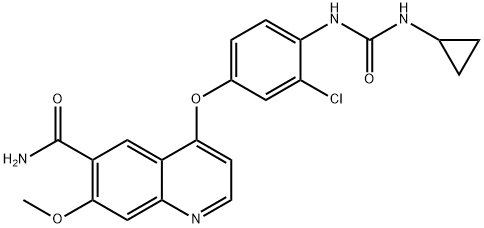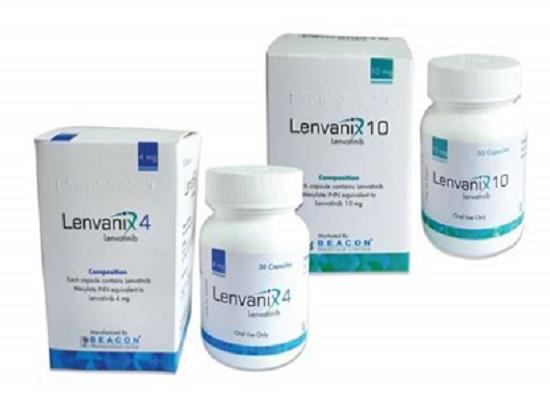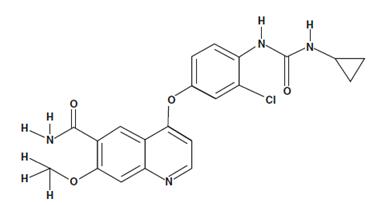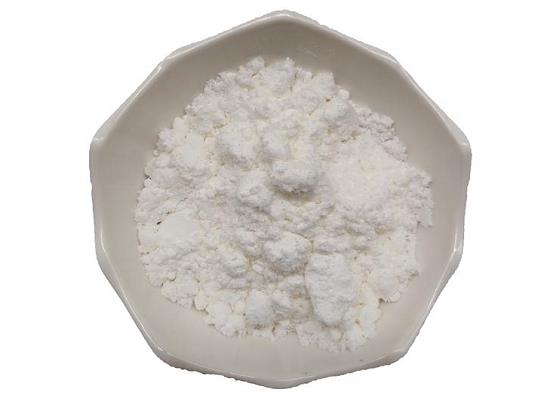Lenvatinib: Uses, Dose, Mechanism of action and Side effects
Uses of Lenvatinib
Lenvatinib is a prescription anticancer drug that belongs to the class of multi-receptor tyrosine kinase inhibitors. Lenvatinib has potent anti-angiogenic properties and is indicated as monotherapy or combination therapy for certain malignancies. Lenvatinib is FDA-approved for the treatment of radioiodine-refractory differentiated thyroid cancer (DTC), unresectable or advanced hepatocellular carcinoma (HCC) and advanced renal cell carcinoma (RCC). The primary treatment is for adult patients and it is not known whether lenvatimat is safe and effective in children.
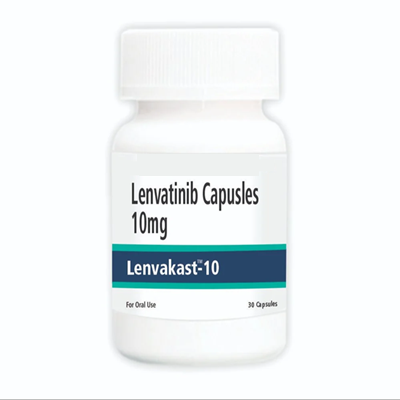
Dose of Lenvatinib
The main dosage form of Lenvaitnib is a capsule for oral administration, available in 4 mg and 10 mg.
Radioactive Iodine-refractory Differentiated Thyroid Cancer (DTC):
24 mg (two 10 mg capsules and one 4 mg capsule) orally once a day.
Advanced Renal Cell Carcinoma (RCC):
First-line treatment: 20 mg orally once a day in combination with pembrolizumab for up to two years; then can be given as monotherapy.
Previously treated disease: 18 mg orally once daily in combination with everolimus.
Unresectable Hepatocellular Carcinoma (HCC):
The suggested dose should be determined based on the patient's body weight:
12 mg orally once a day for patients' body weight greater than or equal to 60 kg.
8 mg orally once a day for patients weighing less than 60 kg.
Advanced Endometrial Carcinoma
20 mg orally once daily; for patients with non-microsatellite instability-high (MSI-H) or non-mismatch repair deficient (dMMR) progressive disease who are not candidates for X-ray therapy or curative surgery, use with pembrolizumab.
In patients with hepatic or renal insufficiency, dosage adjustment is required. The specific use of the drug, or to follow the doctor's instructions to take.
Mechanism of action
Lenvatinib exerts its mechanism of action via inhibition of multiple receptors of tyrosine kinases: VEGFR-1 (FLT1), VEGFR-2( KDR), VEGFR-3 (FLT4), FGFR-1, FGFR-2, FGFR-3, FGFR-4, PDGFRa, RET, and c-KIT. Tumor growth is dependent on the development and proliferation of new blood vessels (neovascularization). Tumor growth and angiogenesis occur when the ligands bind to their respective tyrosine kinase receptors in the cellular membrane, initiating an intracellular signal transduction phosphorylation cascade promoting angiogenesis and cell proliferation.
The inhibition of the VEGF receptors prevents tumor angiogenesis, and the inhibition of FGFR, RET, PDGFRα, and KIT prevents the further proliferation of malignant cells. The concurrent inhibition of both receptor pathways results in the inhibition of nuclear signal transduction and concomitant suppression of the activity of factors involved in tumor growth.
Side effects
The most common side effects of Lenvatinib are diarrhoea and high blood pressure, which can be serious. If you experience worsening of symptoms, stop the medicine and consult your doctor. Other serious adverse reactions that may occur include: heart problems (shortness of breath or swelling of the ankles); problems with blood clots in the blood vessels (arteries) (severe chest pain or pressure, pain, numbness, shortness of breath); liver problems (liver failure and death); kidney problems (kidney failure can lead to death); proteinuria; fistulas (severe stomach (abdominal) pain); and a change in the heart's electrical activity known as a prolonged QT interval. hypocalcaemia; reversible posterior leukoencephalopathy syndrome (RPLS); haemorrhage; changes in thyroid hormone levels; wound healing problems; severe jaw problems (osteonecrosis). Contact your doctor promptly if you develop any signs or symptoms of a serious problem during treatment.
You may like
Related articles And Qustion
Lastest Price from Lenvatinib manufacturers

US $5.00-0.50/KG2025-06-05
- CAS:
- 417716-92-8
- Min. Order:
- 1KG
- Purity:
- 99% hplc
- Supply Ability:
- 500TONS

US $0.00/kg2025-05-17
- CAS:
- 417716-92-8
- Min. Order:
- 1kg
- Purity:
- 98%
- Supply Ability:
- 1000kg
